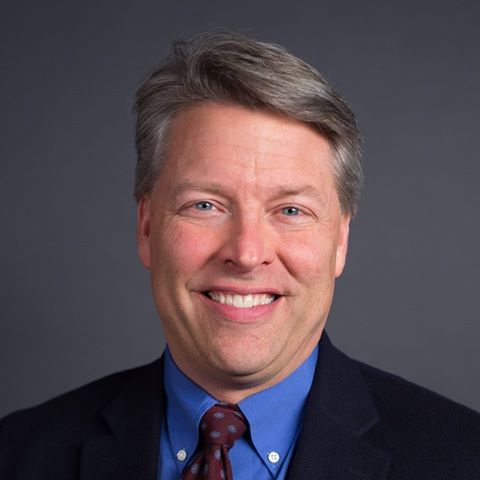News and Releases

Video
2018 J.J. Thiessen Lecture series with Dr. John Witvliet (3 videos)
Friday, October 19, 2018 @ 8:00 AM | Video
Violence, Injustice, Trauma, and the Ordinary Practices of Christian Worship in a Social Media Age

with Dr. John Witvliet
Director & Professor of Worship, Theology, and Congregational and Ministry Studies at the Calvin Institute of Christian Worship in Grand Rapids, MI
On Sunday mornings, like every other day, the world wakes up to a steady stream of terrible news about human violence, injustice and trauma. On Sunday mornings, Christians wake up and participate in public worship services that have to do with ultimate matters of God, creation, faith, life, death, salvation, and hope.
The question that haunts and invites us is this:
- What do our ordinary Sunday morning worship services have to do with the world's never ending violence, injustice, and trauma?
- How does our posture toward this bad news play out in congregations that consist of both bullies and the bullied, victims and victimizers, empathetic caregivers and disinterested bystanders?
- How does this unfold in quite different cultural contexts—in communities with profoundly different ways of perceiving time, authority, risk, and individual agency?
Escapist non-engagement with the world's troubles in our worship is tempting. And direct engagement with violence and trauma can be fraught with challenges, risking re-inscribing trauma on those of us most in need of healing. All of this is increasingly complicated by the different patterns of exposure we have to the world's trauma in light of social media. What wisdom can we share with each other about shaping public worship as we seek to live out our calling as Christ's body in the world?
Lecture #1: Tuesday, October 16, 7:30 PM
Prayers of the People and a Cruciform Pastoral Imagination
What we pray for in public is reliable indicator of what we believe God is capable of and inclined to do in the world. Yet too often, what many Christian congregations do on normal Sunday mornings is to normalize a spiritually harmful vision of a god that has little to do with the world's trauma. We can do better. Intentional sustained prayer for the triune God's healing of violence, injustice, and trauma is surely something we can all agree should be a priority. But then, what kind of pastoral imagination do we need to nurture prayers that heal rather than hurt, that express both poignant longing and genuine hopefulness? What does this look like in quite different cultural contexts? And how can we pray in ways that do not overly politicize our worship, except for the politics fitting to our citizenship in the kingdom of God?
Lecture #2: Wednesday, October 17, 11:00 AM
Praise Beyond Cliché and Other Practices of Transfigured Cruciform Engagement
At first glance, our Sunday morning songs of praise and adoration might not seem like the most apt response to the world's trauma. How can so much joy, light, and enthusiasm possibly minister to so much pain and trauma? Indeed, praise can be a problem, particularly when it slips into simplisitic cliché, when it massages our egos rather than converts them, and when it promotes a triumphalistic vision detached from the cross of Christ. Yet the praise of the triune God can also be an anchor in a storm, a vision of light in the shadows, a practice of hope in context of hopelessness. And transfigured praise can also point us to other practices of cruciform engagement with the world's troubles that many victims of violence and trauma have found to be healing. While a significant dimension of our response to violence is occasional, responding to specific events and tragedies, we have so much to learn about how ordinary, routine practices can be used by God's Spirit to bring healing and hope.
Lecture #3: Wednesday, October 1, 7:30 PM
Discipling Emotion, Singing at the Table, and Practices of Mutual Accountability
Public worship is so much more than an exercise in thinking. It is also about the gestures, postures, and profound emotions that emerge from our covenantal engagement with the triune God. As we face the world's tragedies, how might Christian public worship be a school of discipleship not merely for how we think about them, but also for how we feel about and in them? How might worship purify and sanctify our emotions? Drawing on several generations of theological testimony about African-American spirituals, this lecture will explore what "godly sorrow," "righteous anger," and "cruciform hope" have sounded like across a range of Christian worship music, and then explore how we might deepen our own practices of singing together at the Lord's Table. We'll conclude with reflections on how all of these forms of transfigured engagement with violence, injustice, and trauma require collaboration in Christian community. We need each other—pastors, musicians, and artists; Mennonite, Reformed, and Catholic communities; missiologists, pastoral care givers, and theologians—not so that we will arrive at a neat and tidy formula for our typical Sunday morning services, but rather to cultivate a cruciform imagination out of which those services will be shaped and experienced, and a mutual commitment to serve together as ministers of God's peace.
KEYWORDS: J.J. Thiessen Lecture Series, JJT Thiessen, John Witvliet, video

 Print This Article
Print This Article